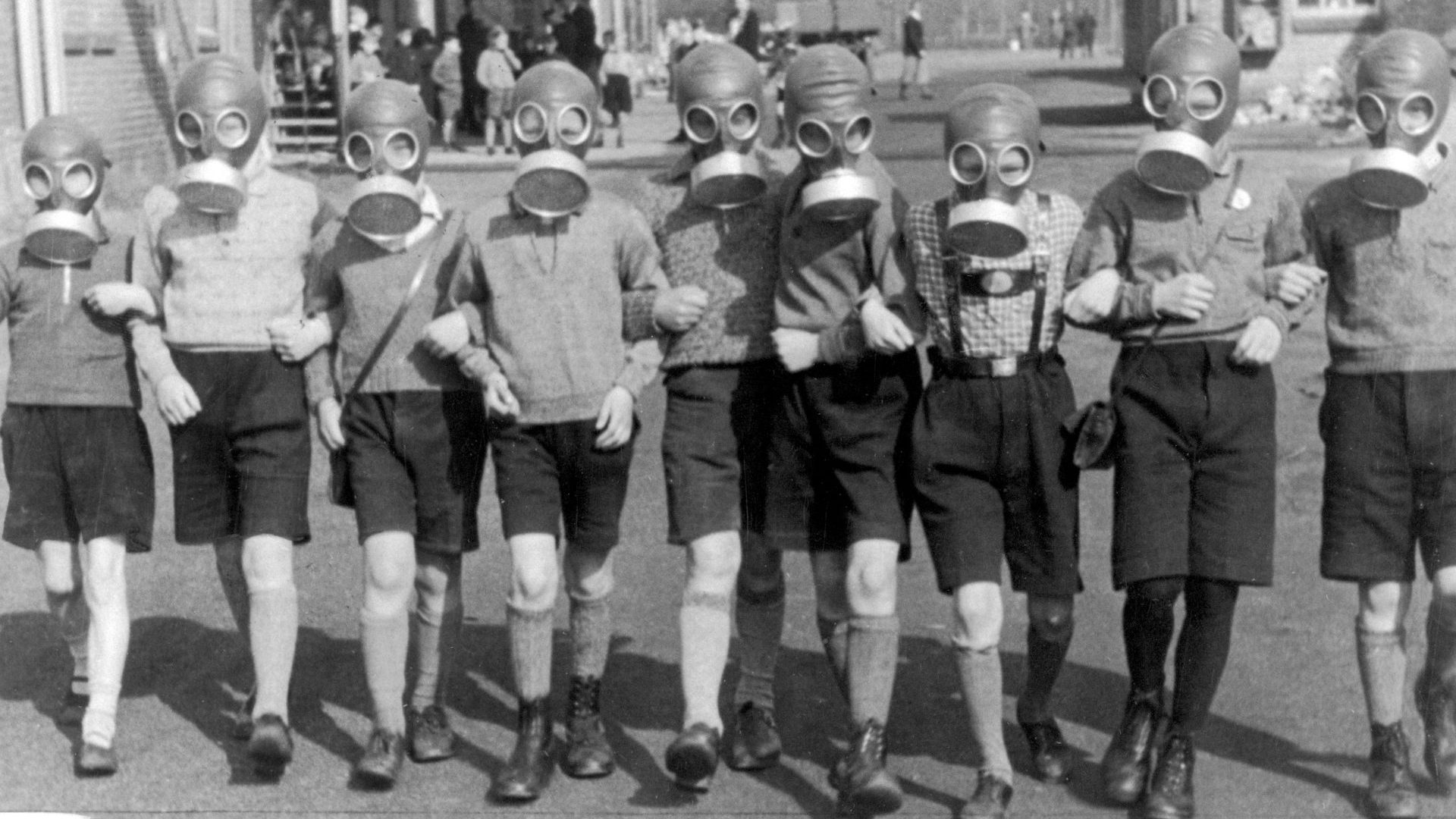It is not often that one can become excited about a new book by an author who died 16 years ago – but you can when it comes to a new literary translation. At the beginning of next month, 52 years after it was first published in Germany as Tadellöser & Wolff, the debut novel by Walter Kempowski is at last becoming available to Anglophone readers.
Half a century is a long time for English-language Kempowski fans to wait, but his autobiographical novel An Ordinary Youth, clocking in at almost 500 pages, certainly gives you a lot of Walter for your wonga. Published next month by Granta in Michael Lipkin’s translation, An Ordinary Youth is a valuable insight into the mind and methods of one of Europe’s most important modern writers, a hypnotic immersion deep inside one of our continent’s darkest periods and a book that from some angles feels chillingly contemporary.
An Ordinary Youth is pure Kempowski, to the extent that this new translated edition can hoodwink the reader into forgetting this was his first proper novel. From the first paragraph there is the same wry wit, economy of language and faint air of wistful melancholy one finds in his masterpiece All for Nothing, published in 2006 when Kempowski was 77 years old, with just a few months to live. There is no sense of an author learning his craft or developing his style here. It’s as if he arrived at the peak of his powers and remained there for the rest of his life.
Born in 1929 in the Baltic port city of Rostock, Kempowski’s childhood played out against the rise of Nazism. His adolescence spanned the war and he emerged into adulthood a citizen of a nation destroyed, humiliated and despised.
In another era his life would have been one of comfortable privilege. His father, Karl, who would be killed on the Eastern Front days before the end of the war, ran a successful shipping company, while his mother, Grete, came from a wealthy Hamburg merchant family. There were childhood piano lessons and holidays on beaches and in the mountains, but the timing of his birth forced Kempowski to be a witness to modern Europe’s darkest times – he would become their key chronicler.
After the conflict, Kempowski moved to Wiesbaden and found work at a US military grocery shop while his mother and older brother, Robert, remained in Rostock, inside the Soviet sector. Returning home to visit during the spring of 1948, Kempowski was handed a sheaf of documents by Robert that were proof, he said, of the Russians stripping German factories of anything useful and shipping it all back to the Soviet Union.
Walter agreed to pass the information to the Americans, but when Soviet checkpoint guards discovered the documents it earned the Kempowski brothers 25-year prison sentences for espionage. Walter served eight before being released and expelled from the GDR, finding work in the west as a schoolteacher and thinking constantly about the stories he’d heard of inmates’ experiences under Nazism. From the horrifying to the trivial, the variety of their memories stayed with Kempowski, who recognised that the times through which they had all lived needed to be preserved as thoroughly as possible. He took up his pen and began to write.
First there was the six-volume Deutsche Chronik series of novels that recorded the story of his family from the 1890s. Then came his magnum opus, Das Echolot.
In the early 1980s Kempowski had found in the street a bundle of letters written by a German soldier on the Eastern Front to his family. For all the history books he had read and documentaries he had watched, these intimate snapshots of one man’s experience of the war, with its requests for warm socks, and anecdotes of friendships made and comrades lost, had a profound effect on Kempowski, inspiring an almost pathological determination to collect as much documentary material from the war as he could. He placed small ads in Die Welt asking for diaries, letters, photographs, newspaper cuttings, songs, tickets, leaflets, anything – and they arrived by the sackload.
From this voracious accumulation emerged the 12 volumes of Das Echolot, selections Kempowski believed best illustrated the everyday lives of the German people between the 1941 invasion of the Soviet Union and the end of the war.
He spent nearly a quarter of a century on Das Echolot, which means “echo sounder”, yet still found the time to write and publish novels and short stories culminating with All for Nothing in 2006. It’s a brilliantly atmospheric novel about a wealthy East Prussian family at the end of the war awaiting the return of the patriarch from the Eastern Front while watching a trickle of refugees turn into a flood ahead of the advancing Soviet army.
All for Nothing is an extraordinary testament as a final novel, one that brackets perfectly the book with which his fiction career had begun more than three decades earlier.
The word “fiction” here does a great deal of heavy lifting, because An Ordinary Youth is about as autobiographical as a novel can be, in spite of an epigraph prefacing the book declaring “All details completely made up”. For a start the protagonist is a boy named Walter Kempowski, born in 1929 in Rostock whose father, Karl, owns a shipping line and whose mother, Grete, comes from a Hamburg merchant family.
But there is much more to reading An Ordinary Youth than trying to discern fact from fiction. Beginning in 1938 when Walter is nine years old and ending in 1945 as he and his mother await Karl’s return, still unaware of his death, the book is written in trademark Kempowski style; curtly written standalone paragraphs that create more of a collage than a conventional narrative. Some even work as self-contained epigrams in themselves – “A pale seminarian usually had his [piano] lesson before mine. He wore tennis shoes. His mother was a chorus singer in the theatre. He probably longed to make something of himself one day” – creating a sense of an author noting down memories and thoughts as they occur to him, often interspersed with snatches of song lyrics and advertising slogans. It is almost as if Kempowski is anticipating the Das Echolot project that still lay more than a decade in the future.
The effect is mesmerising. The book is intimate and immediate, pulling the reader deeply into this wealthy 1930s Rostock household with its eccentric Great War veteran father and melancholic, nostalgic mother. The Kempowski siblings tease each other, play games and complain about school as part of a wholly recognisable childhood that makes initially sparse hints of a wider malevolent political atmosphere more shocking when they occur: a photograph of Hitler on an office wall here, a cheerful enquiry as to when Kempowski was joining the Hitler Youth there. Mention of a burnt-out synagogue seen on the way to school and the antisemitism and racism that slot smoothly into the flow of regular conversation jar the reader on the page but are presented merely as part of German life in the late 1930s.
This is what makes An Ordinary Youth’s publication now so impactful. When we think of the rise of fascism in the 20th century we think of men in immaculate uniforms marching in step, huge banners hanging from buildings, ranting orators behind giant microphones, frightened people with yellow stars on their coats, death camps.
Yet here fascism thrums away in the background almost imperceptibly at first in an ordinary world where kids play kids’ games and wind up their teachers, and where there are family holidays, laughter and jokes, romances and the dreams of romance. Fascism, we are reminded, doesn’t take hold through dramatic beer-hall putsches but by degrees small enough to seem normal – a kindly post-prandial father in his armchair teasing his children while listening to the news on the radio and announcing “old Hitler has a good head on his shoulders”.
Normality erodes gradually, the darkness spreading almost imperceptibly as its rituals are wearily accepted by school children who “saluted throughout the [national] anthem despite our arms growing heavier and heavier. We ended up leaning our arms on the person in front of us for support”.
But then come the air raids that all but destroy Rostock, forcing its residents and neighbours into cellars.
Even by the later stages of the war, the creep of reality has been glacial enough for delusions to persist beyond the capacity for reason. In 1944, when a 15-year-old Kempowski has been called up for mandatory service, his supervisor is delighted by news of the allied invasion, clapping his hands as he announces “we finally have them by the scruff of the neck and can annihilate them”.
An Ordinary Youth is an absolute treat for Kempowski fans and those seeking an insight into how Nazism took hold in Germany. A wonderful book, it also serves as a reminder of how easily against the familiar background cacophony of daily life with its routines, responsibilities, joys, disappointments and distractions, a weirdo on a podium babbling about hurricanes of immigration can become lost in the noise. But they are there. And people are listening.
When Germany invades Poland, Kempowski’s teacher pins up a map and outlines the swift and decisive predicted troop movements. This, he informs them gleefully, is a different kind of war from the conflict in which most of their fathers had fought, explaining that “in the world war you barely got your head out of the muck”.
“What will this war be called when it’s over?” asks one of the children.
An Ordinary Youth by Walter Kempowski, translated by Michael Lipkin, is published by Granta on November 2, price £18.99




